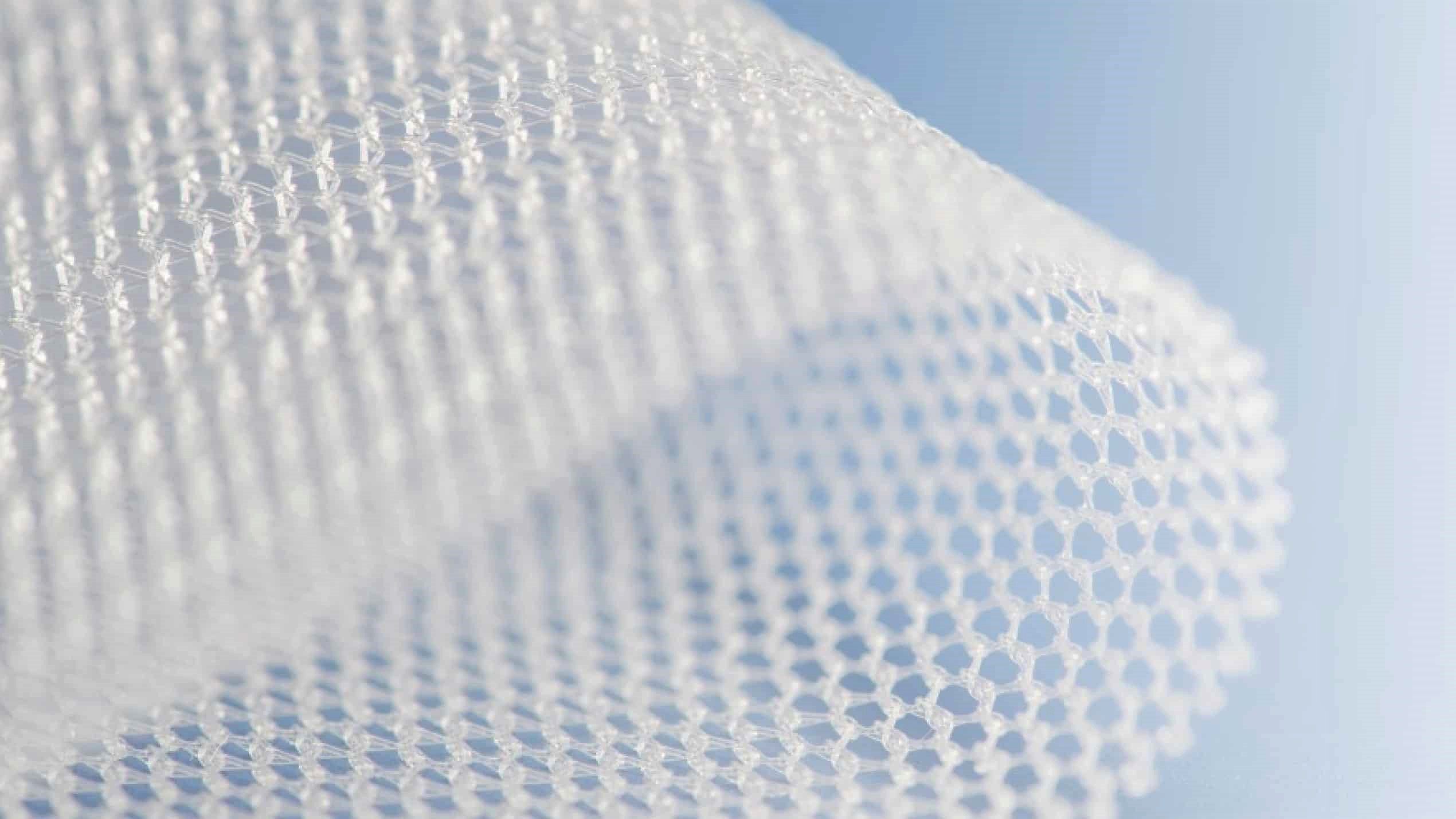
Many patients ask us about ‘mesh’ used in hernia surgery, often concerned about reports that they have read in relation to chronic pain. In this article we explain what mesh is and some of the causes of chronic pain after hernia repair.
What is Mesh?
Mesh is a sheet of material often used to reinforce weak areas of the abdominal wall where a hernia has arisen. Most meshes used are synthetic (man-made), however in some cases, animal-based mesh products can be used. The material used to make the mesh forms a matrix around which healthy scar tissue forms which reduces the chance of hernias coming back again (known as hernia recurrence).
Meshes are made from different materials. They can be fully absorbable, partially absorbable or completely permanent. Understanding the properties of the different types of mesh is important for the surgeon depending on the situation and type of hernia being repaired.
Is Mesh Safe?
Mesh is very safe and is used in tens of thousands of hernia repairs each year in the UK. Complications associated specifically with mesh are very rare, but can include infection of the mesh, chronic pain and seroma (a collection of the body’s fluid which occurs during healing). However, it is important to note that the risk of these problems occuring is also increased by a number of patient and surgeon-related factors (such as obesity, smoking, diabetes, certain medications and surgical technique).
What is Chronic Pain?
Chronic pain after hernia surgery is defined as pain around the site of surgery which persists for longer than three months. Research suggests that this can occur in between 5 to 10 out of every 100 hernia repairs. Chronic pain can present in a number of ways including burning, aching or sharp pains sometimes described as an ‘electric shock’. These symptoms can vary from person to person and may be present infrequently, more often or all the time. The impact of this pain can range from minimal to severely affecting a patient’s ability to perform daily activities including work.
What are the causes of chronic pain?
Reasons for chronic pain after surgery are many and it can be difficult to pinpoint one particular cause. Research suggests that chronic groin can be due to one of the following causes:
– Recurrence of the hernia can give rise to pain.
– Nerve damage or irritation can be caused by direct injury during surgery, being entangled in a stitch or irritation by mesh.
– Mesh can cause chronic pain through irritation of soft tissues, nerve irritation, infection or contraction of the mesh. The type of mesh used can sometimes be associated with chronic pain.
– Surgical techniques such as using permanent fixation of mesh by metal tacks into the pubic bone can cause pain. Research also suggests that keyhole (laparoscopic) surgery is associated with a lower incidence of chronic pain.
– Low mood which is not uncommonly seen in patients with a long history of chronic pain has been shown to increase the severity of symptoms.
How do you treat chronic pain?
The treatment of chronic pain depends on the likely cause. A recurrent hernia can be repaired, however hernias do not always cause pain, and repair of a recurrent hernia is no guarantee that chronic pain will improve or disappear. It is essential that you are thoroughly investigated and this may include an ultrasound scan, CT-scan and MRI scan to look for the causes of pain listed above. If you have had a mesh repair and the pain is sufficiently debilitating, then surgery to remove the mesh may be considered after a careful and thorough consent process.
Summary
1. Mesh is often used to repair hernias.
2. Mesh is safe and complication rates are low.
3. There are many causes of chronic pain after surgery, of which mesh is one.
4. A thorough investigation of these causes is required before surgery to remove the mesh should be considered.
Useful Links

Mr Bilal Alkhaffaf is a consultant surgeon with a specialist interest in minimally invasive (keyhole) surgery. His area of expertise includes cancers of the upper gastrointestinal tract (oesophageal and gastric cancer), digestive conditions (acid reflux, hiatus hernia and achalasia), gallstones and hernias.
If you would like to arrange a consultation with Mr Alkhaffaf, please call us on 0161 447 6766 or click here.
